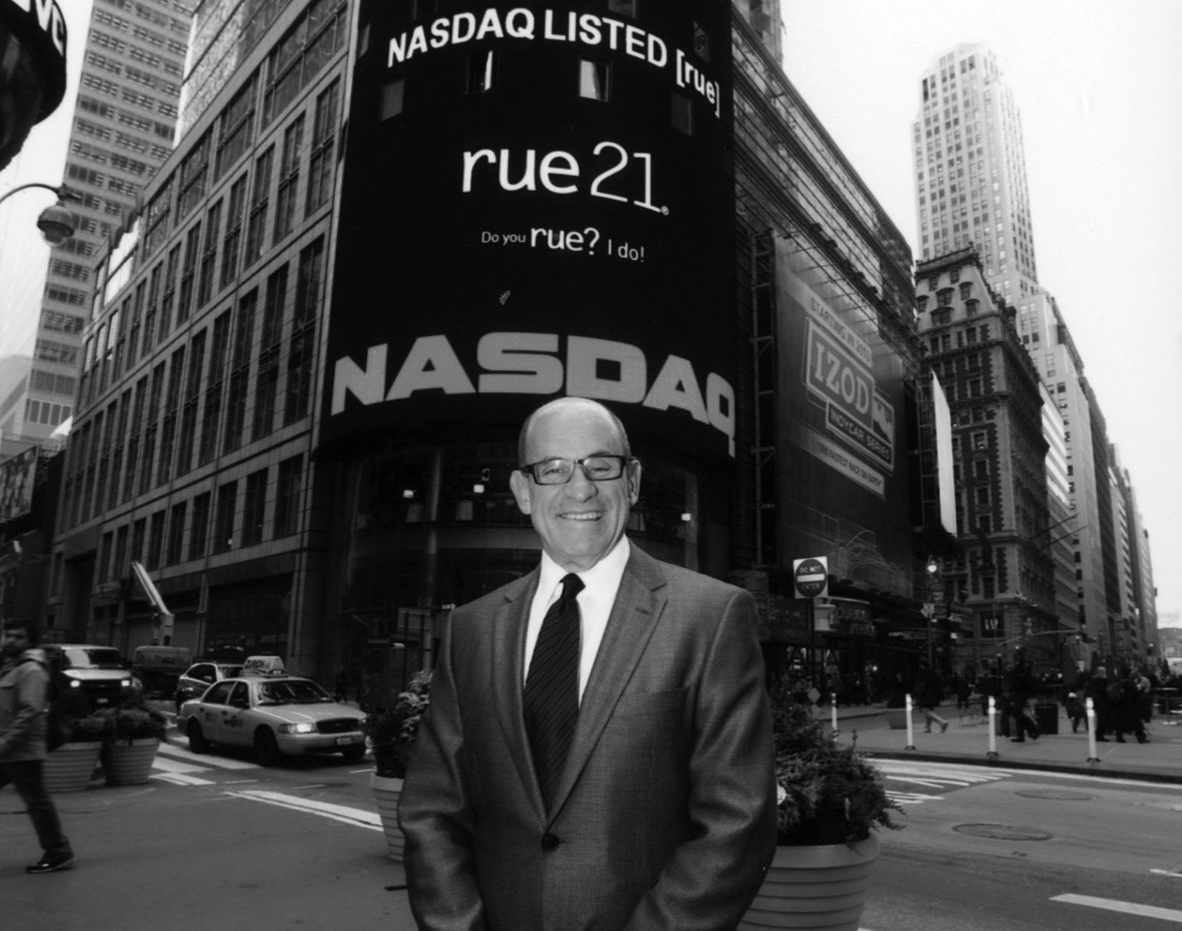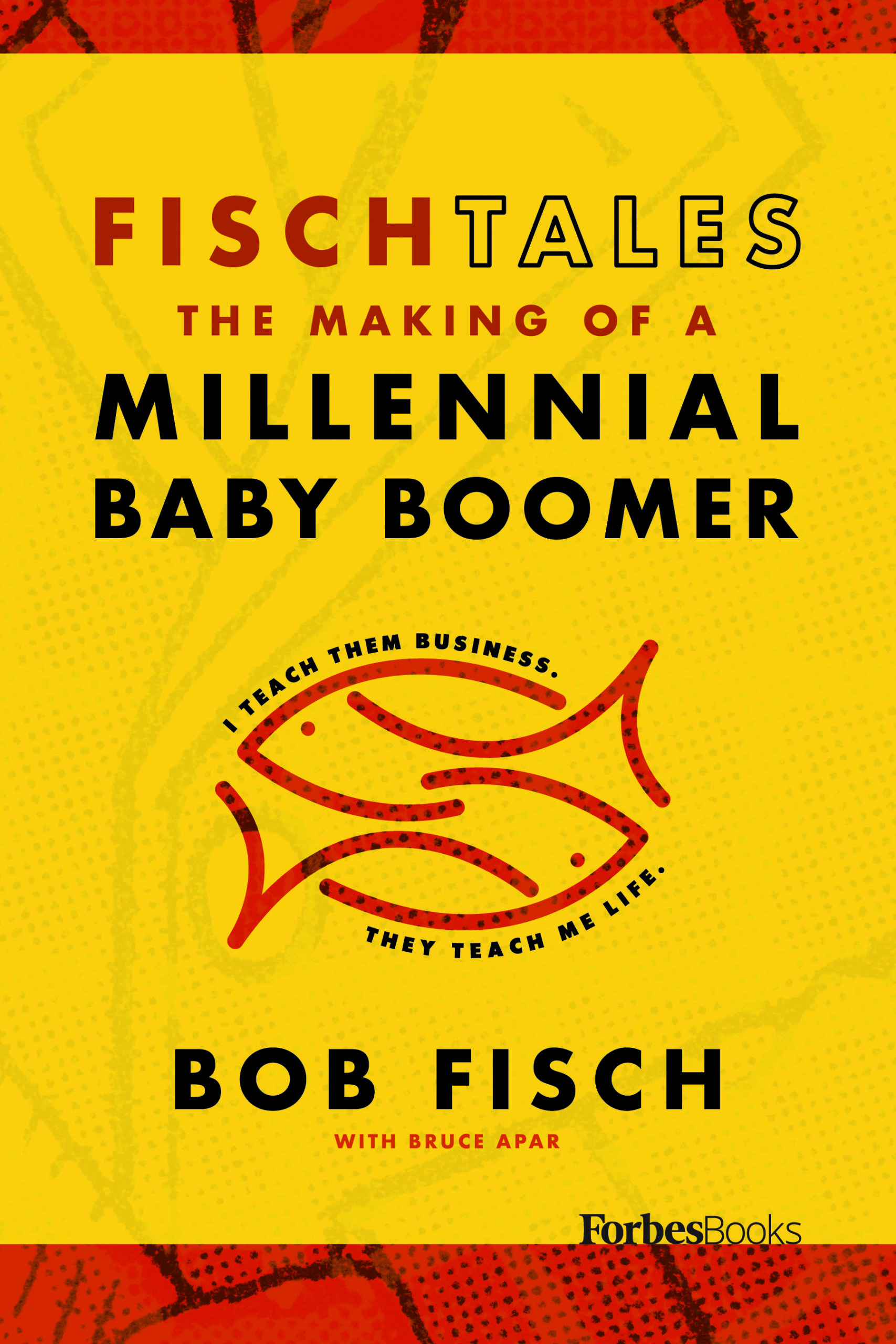Regardless of whether they collaborate online or in an actual office, the workforce of a typical organization today is composed of as many as five generations–an age diversity that can be a recipe for conflict, especially in these particularly stressful times. However, Bob Fisch believes smart managers can leverage this diversity into a strength.
“I had 21,000 people working for me at one point, and 90% of them were under 35,” says Fisch, former CEO of fashion retailer rue21 and a nearly 50-year veteran of the retail industry. “Most of the people in my office were between 20 and 30 years old. I taught them about business, and they taught me about life.”
Fisch has spent decades serving as an executive in the industry, including at department-store chain Jordan Marsh and discount apparel chain Casual Corner, which he helped build from three stores to about 300. Today, he’s a member of the board at Ollie’s Bargain Outlet Inc., a $5 billion chain of discount stores; a consultant and investor; and author of the recently published book Fisch Tales: The Making of a Millennial Baby Boomer.
What’s key is for managers to act and behave in ways that reflect the maxim that everyone, regardless of their age, has something to teach others, he says.
See also: Are millennials really favored in the workplace?
Fisch: “Weren’t we all 25 years old once?” says Fisch. “You wanted to be heard, to be acknowledged. To me, it starts with leaders who ensure people know how to speak up.”
HRE recently spoke with Fisch to learn more about the lessons he’s learned from successfully leading multiple generations of workers over the decades.
HRE: First of all, what’s a “Millennial Baby Boomer”?

Fisch: I own the intellectual property and actually registered that as a trademark. It’s all about being someone to whom members of all generations can relate. It’s all about blending together the qualities of the different generations to bridge the gap.
HRE: How can boomer managers better connect with millennial employees?
Fisch: What I do is figure out how to get other people to relate to each other, not only to me. I wrote a blog for Forbes called OK, Millennial, and in it, I wrote about the fears and misconceptions on both sides of the generation gap. I talked about how millennials give you the opportunity to learn more about tech and about their vision and creativity but also the fact that they might not know how to take their ideas to fruition. They think they do, and that’s what hurts them. The boomers, meanwhile, have the experience and knowledge. So, both groups have something to teach the other: The millennial gets the boomer out of their comfort zone and the boomer helps the millennial take their business smarts to fruition. To me, that’s key. Leadership is working with people and mentoring them.
HRE: What did you learn from millennials yourself?
Fisch: In 2018, I put together a millennial advisory board to help me build my book and brand. I got great insight from them. They help teach me to get out of my comfort zone. Today, I could be retired, just sitting in a rocking chair here in Miami, but instead I’m writing blogs and books, I’m a consultant, an adviser, an investor, a mentor and a speaker. Millennials tell me, “Don’t stop pushing yourself because you don’t stop pushing us.” And I do push them–I tell them if they want to get ahead, they need to speak up and stand up for what they believe in. I’ve been a disruptor all my life because I stand up for what I believe in. And I’m all about helping people make a difference for themselves. Most young people are, in fact, self-centered, but that’s OK because I was too at that age. Most of us were. Young people need to realize that they need mentors, and we need to teach them to understand they need mentors. They may not agree with you, but they’ll respect you for your experience.
Related: Managing millennials requires empathy and guidance
HRE: Can you define and provide an example of “generation splicing”?
Fisch: It’s all about mutual mentoring. At rue21, I didn’t believe in “staying in your lane.” When older people talk like that, it’s something that sure wouldn’t stimulate me if I was a millennial. If I had to pull together a team, I would bring people from merchandising, marketing and so on and have them work in one area. I’d take all 375 people in the corporate office and, when a movie like Hunger Games came out, I’d rent out the movie theater and we’d all watch it before anyone else as a team-building exercise. When people sit in the office looking at a screen, I’d say “Turn around and look at me.” I’m all about positive confrontation. I think too many people are afraid to do that these days. Also, people need to learn how their company stays in business. They have to understand that’s what their job is each day they come in: to help the company make a profit. You can’t beat that into people, you have to explain it and show them. You have to be into something called “tribal knowledge”–that’s where people are working with you and they understand what they need to do to help make the company successful. That it’s not just about themselves.
Fisch: When you listen well, you’re able to develop critical thinking to help put the pieces of the puzzle together. I had to get good at listening when I became CEO at the age of 36. It’s key. First, you have to listen carefully to your customers. Many people don’t do that well. Second, listen to your bosses–listen hard to what they say and evaluate that. Third, listen intently to the people who work for and with you. The senior-level people have to listen to their people.
HRE: What role does HR need to play in order to foster better harmony between the generations?
Fisch: No. 1, the HR person should report to the CEO, not someone else. I always made sure the senior HR person reported to me, not the CFO. As CEO, you need to have good rapport with your CHRO because they’re your right hand, just like your general counsel. An HR leader needs to have the trust of the CEO and the people in the organization. It’s a tough balance. Just as I need to be able to listen in order to be trusted as CEO, they also need to listen. If people aren’t trusting what they hear, you need to be able to dig into why. I also believe in a strong HR team. I was not into cutting HR costs when things got tough. It’s just too important. The HR leadership needs to understand the pulse of the company, and they need to be able to find good people to bring into the company and identify good people within the company who can be developed. I also don’t love using outside recruiters; I prefer HR leaders who can find good people themselves. I expected them to know how to network to get great people.

